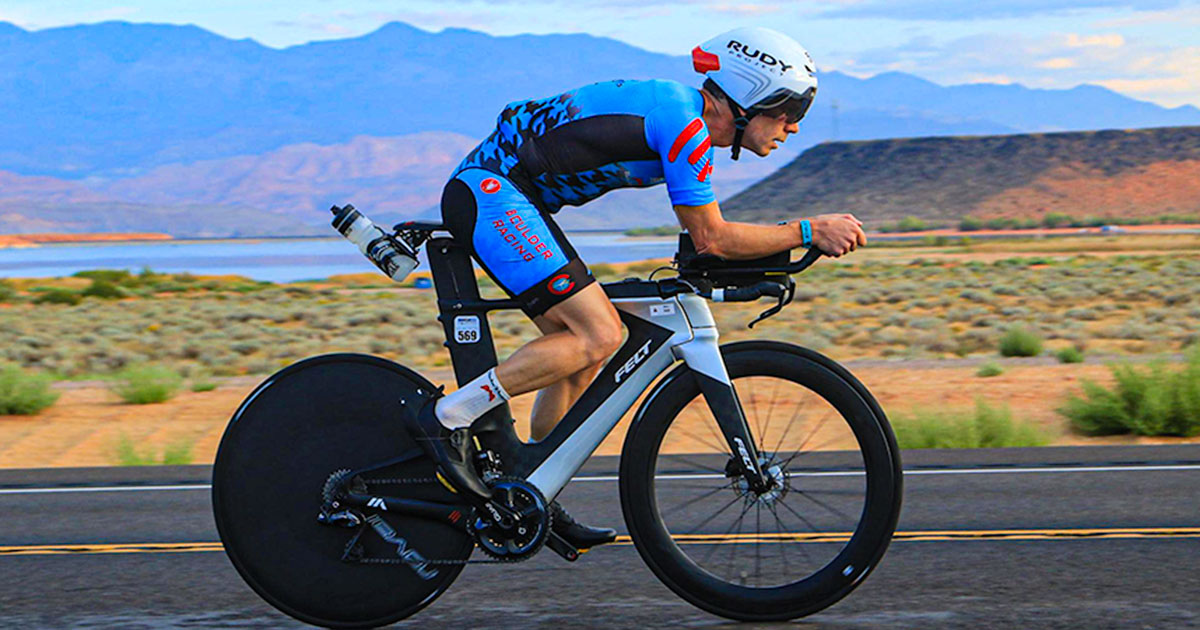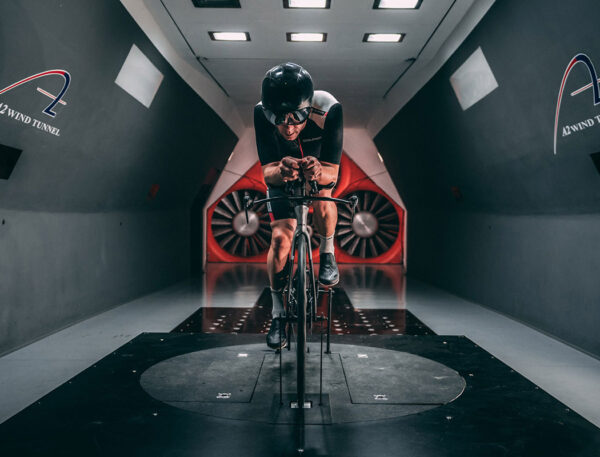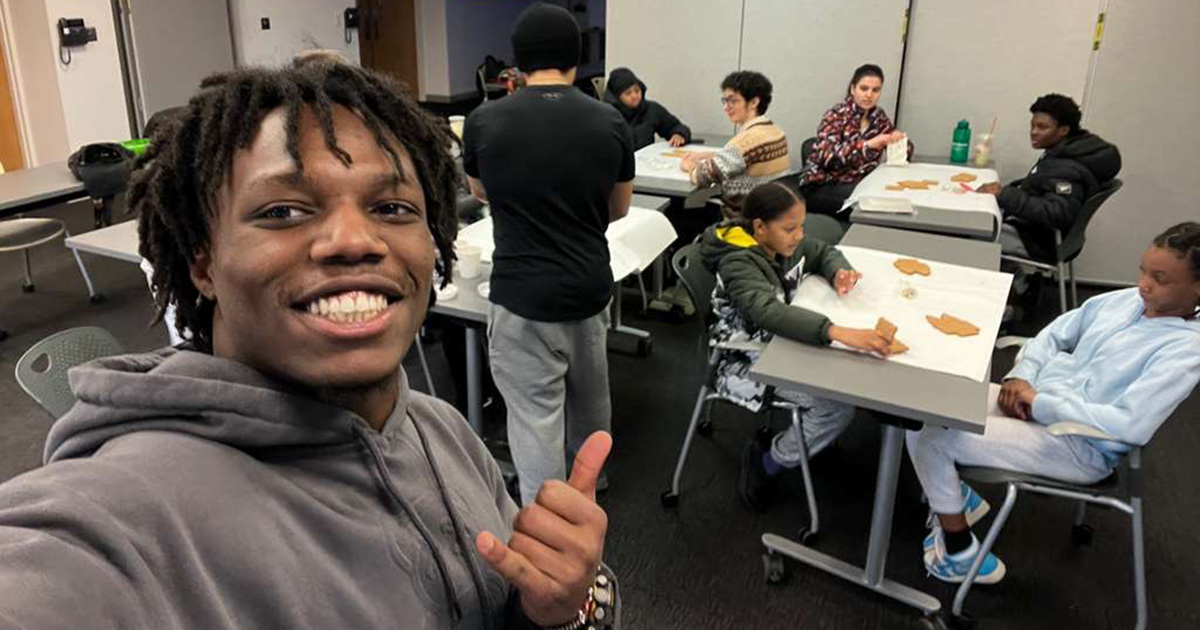The Quest to Create a Very Fast Shoe

Ed O’Malley MBA’03 has a habit of taking on complicated endeavors. Consider the matter of the shoe.
In 2018, O’Malley set about designing and creating a more aerodynamic cycling shoe for triathletes. Admittedly, he didn’t know much about making shoes at the time, but he is a triathlete and an engineer who once did work for NASA. He thought he could bring a shoe to market in a year or so.
Instead, five years passed, five long years of pandemic delays, material shortages, and manufacturing issues. Through all the challenges that creeped up, however, O’Malley learned and kept at it. “I think I have a lot of determination and am able to absorb a lot of this stuff,” says O’Malley, who resides in Boulder, Colorado. “I have a generally optimistic outlook on things.”
That outlook ultimately paid off, as the shoe, the Monarch, was released last month. O’Malley is the founder and CEO of its manufacturer, VeloVetta. So far, the Monarch has seen strong sales.
Five years may have been longer than expected, but it is not the longest that O’Malley has worked on a new project. This is his third startup, and he has dealt with many patience-testing pivots, problems, and postponements through the years. “Every single business I started I underestimated how difficult it would be,” he says. “You would think I would learn that lesson, but apparently I don’t.”
Three Companies
O’Malley didn’t always want to be an entrepreneur. Initially, he had even loftier ambitions: He wanted to be an astronaut. O’Malley earned his pilot’s license, and after majoring in mechanical engineering, he joined a team performing risk analysis of the International Space Station.
Eventually, the space dreams faded, and new aspirations took their place. “To be a company founder and control my own life, that started to sound really interesting,” he says. “That’s when I realized I had no idea how to go about doing that.” To learn how, he earned a Babson MBA.

In a wind tunnel, Ed O’Malley MBA’03 tests the cycling shoe he created for his company, VeloVetta.
O’Malley’s first venture was a maker of auxiliary power units for long-haul trucks, and he left it after a few years. His second, Motiv Engines, is an ongoing concern. O’Malley may have spent five years making a new type of shoe, but his work with Motiv Engines has lasted even longer.
Founded in 2008, the company initially was working to create a dramatically smaller and more efficient diesel engine. Then challenges arose. New goals and designs followed. Years later, the company is now trying to create an engine that runs on hydrogen. While Motiv was able to obtain funding for its earlier diesel prototypes, finding investors for the new hydrogen technology hasn’t been easy. “We haven’t gotten anybody to make that leap with us yet,” O’Malley says.
For his third startup, O’Malley decided to take on shoes for triathletes for the classic entrepreneurial reason: He saw a need.
A Wild Ride
Almost everything for triathletes, from bikes to clothes, is optimized for sleekness and speed. Except for cycling shoes. O’Malley knew of athletes who would buy five or six pairs and then test them in a wind tunnel to find the fastest one. “No one has done a good job of figuring out an aerodynamic shoe,” O’Malley says. “I came to the conclusion I could make a difference.”
For the Monarch, O’Malley designed a smooth, slim, aerodynamic shoe that allows air to flow tightly about its form. “It starts hugging around the object and following its shape,” he says.
O’Malley took his own trip to a wind tunnel to test the Monarch prototype. He discovered that the shoe can shave four minutes and 20 seconds off a triathlete’s time. On first blush, that may not seem like a lot. In the world of triathlons, however, four minutes and 20 seconds is an eternity.
“No one has done a good job of figuring out an aerodynamic shoe. I came to the conclusion I could make a difference.”
Ed O’Malley MBA’03, founder and CEO of VeloVetta
A good triathlete might take some five hours to pedal the 112 miles of the race’s bike leg. If triathletes can shave four minutes and 20 seconds off their time on the bike, that’s four minutes and 20 seconds closer they are to the finish line. “That is a huge amount of time,” O’Malley says.
VeloVetta was set to begin manufacturing in 2020, but then the pandemic hit, shutting down factories. When factories finally reopened, there were delays, and because VeloVetta was working with at least six factories in total, each providing specific parts and molds, that meant a delay in one factory could cause a delay in another. Months passed, and then those months grew to years before the shoe finally was available for sale.
Whether dealing with engines or shoes, O’Malley admits that his entrepreneurial journey has seen frustrations. But the rewards have been great. “Entrepreneurship is quite a wild ride,” O’Malley wrote on his Instagram page after the shoe’s release. “I feel honored by every order that comes in.”
Posted in Entrepreneurial Leadership, Outcomes




